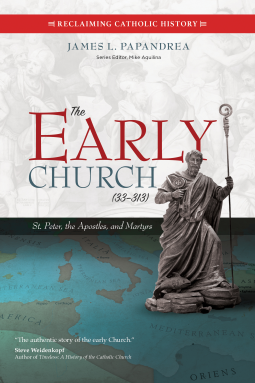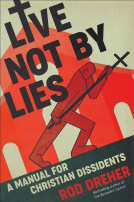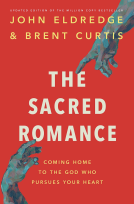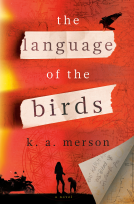
The Early Church
St. Peter, the Apostles, and Martyrs
by James. L. Papandrea
This title was previously available on NetGalley and is now archived.
Send NetGalley books directly to your Kindle or Kindle app
1
To read on a Kindle or Kindle app, please add kindle@netgalley.com as an approved email address to receive files in your Amazon account. Click here for step-by-step instructions.
2
Also find your Kindle email address within your Amazon account, and enter it here.
Pub Date Nov 22 2019 | Archive Date Jan 12 2021
Talking about this book? Use #TheEarlyChurch #NetGalley. More hashtag tips!
Description
The first three centuries of the Christian faith were a period of missionary zeal, deep thought, and tribulation. In The Early Church (33–313): St. Peter, the Apostles, and Martyrs, Catholic historian and biblical expert James Papandrea dispels what he calls common “mythconceptions” about the early years of Christianity. Tracking the challenges of heresy and persecution throughout the period, Papandrea shines a spotlight on the earliest saints and explores the growth and development of the new Church.
The first Apostles spread the message of Jesus Christ and were willing to suffer and die for their faith. The next generations of believers followed their example, producing inspiring martyrs including Polycarp, Justin, Perpetua, and Sebastian, and great thinkers such as Irenaeus, Tertullian, and Eusebius. In The Early Church (33–313), author and historian James Papandrea presents a clear account of the Church’s first three centuries and provides evidence to refute fourteen commonly held beliefs about the Catholic Church. You will learn:
* No money or power was attached to being a bishop or priest in the early Church;
* Christian holidays were not adaptations of pagan celebrations;
* Christians have never believed in an eternal life for souls without bodies;
* The doctrine of the Trinity was not forced upon the Church by Constantine, but rather was a belief from the beginning of Christianity.
With clear explanation and inspiring stories, Papandrea sorts through what we do and don’t know about the early Church and enables Catholics and fellow Christians to make sense of the Church’s beginnings.
A Note From the Publisher
After earning his master’s degree from Fuller Theological Seminary, Papandrea spent several years focusing full time on youth and music ministries and serving as a consultant in youth ministry. He earned his doctorate in the history and theology of the early Christian church from Northwestern. He has also studied Roman history at the American Academy in Rome.
Papandrea is the author of fifteen books for academic and general audiences, including A Week in the Life of Rome, From Star Wars to Superman, and Trinity 101. He has appeared on EWTN TV and a number of Catholic radio shows. He is a member of the Society of Biblical Literature, the North American Patristics Society, and the Catholic Association of Music. Papandrea lives in the Chicago area.
Advance Praise
“Memory is the faculty that tells us who we are. Memory is what gives us our Catholic identity. Yet so much of our memory has been distorted by the falsehoods that pass for history today. This series is much needed. Every book is crystal clear, engaging, entertaining, and myth-busting. Be prepared to be surprised—and to be grateful for the wonders the Lord has done.”
Scott Hahn
Founder of the St. Paul Center for Biblical Theology
“One of the most important eras in Church history is the apostolic age to the conversion of the Roman Empire. The historical record of this pivotal era illustrates that the early Christian Church was the Catholic Church despite false narratives and myths that argue otherwise. In The Early Church (AD 33-313), James Papandrea gives today’s Catholics the authentic story of the early Church. Papandrea combats myths with scholarly precision in a readable and accessible manner. This book satisfies a vital need in reclaiming our Catholic history by telling the stories of the first Christians who spread the Gospel of Christ by their words, deeds, and lives.”
Steve Weidenkopf
Author of Timeless: A History of the Catholic Church
“Making Church history accessible to the average reader has always been a great challenge. Author James Papandrea and editor Mike Aquilina have done a masterful job in this attempt. They have also made it engaging and entertaining. As they say, most histories are written by the winners. But much of Church history is written by the ‘ losers’ and the witnesses to the martyrs from whose blood the Church grew and eventually prospered.”
John Michael Talbot
Catholic singer-songwriter, speaker, and bestselling author
“James Papandrea has done more than anyone to cast light on the obscure early centuries of Christianity. He has taken the extra step of making his findings accessible to non-academic readers. I make it a priority to read whatever he writes.”
Mike Aquilina
Author of A History of the Church in 100 Objects
Editor of the Reclaiming Catholic History series
“This is our story. Papandrea’s tremendous gift is the immediacy of his writing. This is my story.”
Jon M. Sweeney
Author of The Pope Who Quit
"I am confident that this delightful work belongs on the bookshelf of every theology teacher and student alike. A splendid and remarkable text that comprises a fast read in the midst of its advantageous depth. This volume will please the armchair Church historian, the aficionado of adventure, and every soul in between."
Justin McClain
Theology teacher at Bishop McNamara High School Forestville, Maryland
Available Editions
| EDITION | Paperback |
| ISBN | 9781594717710 |
| PRICE | $16.95 (USD) |
Featured Reviews
 Janet P, Reviewer
Janet P, Reviewer
Most of us know little about the early years of the Church. We know there were persecutions, we know Constantine made Christianity legal in the Roman empire. Those of us who remember some church history might remember a few Popes, something about the fate of the Apostles and, perhaps a heresy of two.
The fact that we know little about this important time is part of what m akes Papandrea's short book so wonderful. In an engaging easy-to-read style we'll learn the facts: how the Church grew from the Apostles, how the New Testament grew from documents circulated in Apostolic times, and how the Sacraments became codified. Heresies are covered clearly, showing how they came to be, where they went wrong and how orthodox doctrine came to be defined because of the battle against them.
In addition to a great main narrative, the author also tackles many questions we and other Christians ask about this time.
Written in clear language accessible to high schoolers and above, this is an essential introduction too Church history.
As I read “The Early Church: St. Peter, the Apostles, and Martyrs,” by James L. Papandrea, I was reading an exciting family history. Names I have heard many times became attached to stories of the real people who were part of the Church’s beginnings.
Papandrea’s background is theologically rich and deep, yet, “The Early Church” was very approachable, The author has a sense of humor and allows his personality to shine through, as well. Despite the complex history of the early church, this account was easy to follow due to the way the book was organized chronologically. Readers will easily see the cause and effect that is such a natural part of history.
Within this concise history, the author includes the heresies the early church had to overcome, as well as the major players in the ups and downs of the early church, including martyrs, early popes, philosophers, and politicians. What stood out the most to me was the way these people and the hurdles they faced came alive.
“The Early Church,” provides a deeper understanding of how we moved from Jesus and the Apostles to the Church as it is today. “The Early Church” is just the beginning of the “Reclaiming Catholic History” series. I look forward to seeing how the books in the rest of the series build on this informative, and at the same time entertaining book.
I would recommend this book to anyone interested in learning more about the Church Fathers and the first 3 centuries of Church History. I give it a hearty 5 stars and look forward to reviewing the 2nd book in the series, “The Church and the Roman Empire (301–490): Constantine, Councils, and the Fall of Rome” by Mike Aquilina. “The Early Church” will be released on November 22, 2019. Until then you can pre-order your copy so that you get it as soon as it is available.
Thank you to NetGalley and Ave Maria Press for providing me with an ARC of ”The Early Church” in exchange for an honest review.
Readers who liked this book also liked:
Publishers Lunch
General Fiction (Adult), Nonfiction (Adult), Teens & YA














